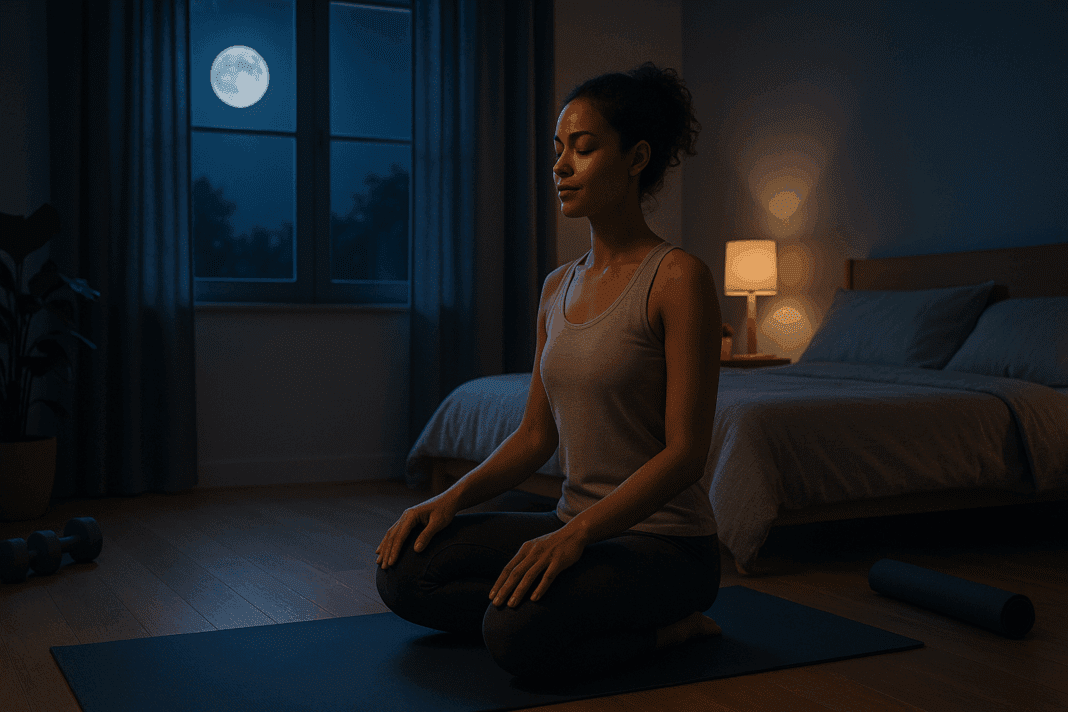In the realm of sleep hygiene and fitness habits, one question has ignited widespread curiosity among health enthusiasts and medical professionals alike: is it good to exercise before bed? This inquiry doesn’t merely spring from idle curiosity but from a deeper concern about how late-day workouts affect our ability to fall asleep, stay asleep, and feel rested. With sleep disorders and fatigue syndromes becoming increasingly common in modern society, understanding the interplay between nighttime physical activity and sleep quality is more essential than ever. As the boundaries between work, home, and leisure blur, many individuals turn to late-night workouts out of necessity, not choice. But does this habit enhance rest or hinder it? This article unravels the latest science, expert opinions, and practical applications surrounding exercising before you sleep, offering vital insights for anyone seeking better nights and brighter mornings.
You may also like: Essential Tips on How to Take Deep Sleep and Fight Everyday Fatigue
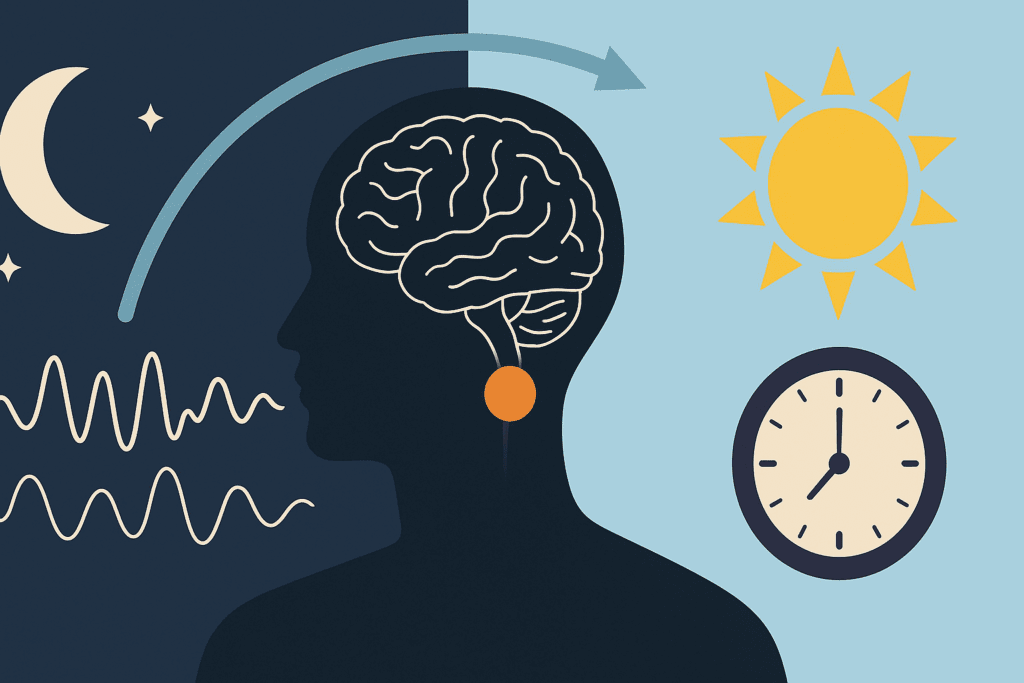
Understanding the Physiology of Sleep and Its Delicate Balance
Before evaluating the impact of a workout before bed, it is essential to understand the intricate physiology that governs our sleep cycles. Human sleep is a complex neurobiological process regulated by two primary systems: the circadian rhythm and the sleep-wake homeostasis. The circadian rhythm functions as a biological clock, responding to light cues and controlling our daily cycles of alertness and drowsiness. Meanwhile, sleep-wake homeostasis balances our sleep drive, increasing the pressure to sleep the longer we stay awake. When both systems are aligned, sleep comes easily and restoratively. However, when disrupted—by stress, environmental cues, or even physical exertion—they can trigger sleep disorders or lead to chronic fatigue syndromes.
Engaging in physical activity stimulates various physiological processes, including the release of endorphins and an elevation in core body temperature. These responses, though beneficial in many contexts, may either support or disrupt the sleep mechanisms depending on their timing and intensity. Therefore, whether or not working out before you sleep is beneficial hinges upon a nuanced understanding of these underlying biological functions.

Is It Good to Exercise Before Bed? Separating Myth from Fact
The question “is it good to exercise before bed” has historically been met with conflicting advice. For years, conventional wisdom cautioned against nighttime exercise, suggesting it could overstimulate the nervous system and impair the ability to fall asleep. However, more recent research has challenged this blanket assumption, introducing a more nuanced perspective. Studies now show that engaging in moderate-intensity exercise before bedtime may actually improve sleep quality for certain individuals, particularly those who struggle with insomnia.
What seems to matter most is the intensity and type of workout. Light to moderate activities, such as yoga, stretching, or walking, appear to promote parasympathetic nervous system activity, helping the body wind down. On the other hand, high-intensity training, such as sprinting or powerlifting, may delay the onset of sleep if performed too close to bedtime. Therefore, the answer to whether it is good to exercise before bed depends largely on the nature and timing of the activity. It is not a simple yes or no, but a tailored recommendation based on personal lifestyle, chronotype, and fitness goals.
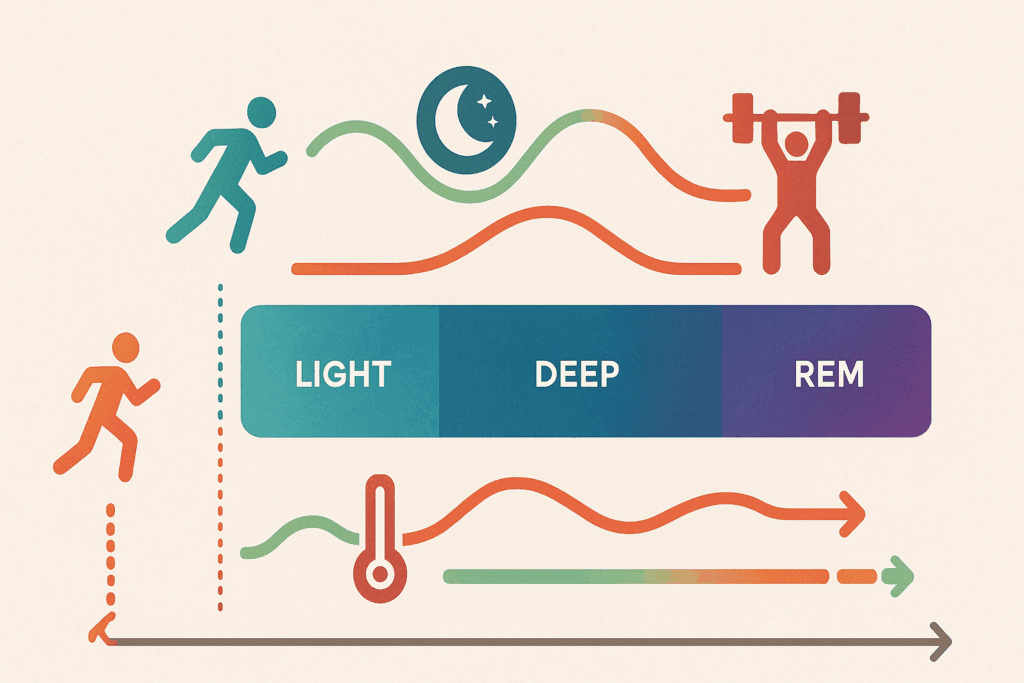
The Science Behind Before Bed Workouts and Sleep Architecture
To better understand how a workout before bed affects sleep, one must consider the architecture of sleep itself. Sleep is composed of multiple stages, including light sleep, deep sleep (slow-wave sleep), and REM (rapid eye movement) sleep. Each stage plays a distinct role in physical and cognitive restoration. Moderate-intensity before bed workouts have been shown to enhance the duration of slow-wave sleep, which is critical for physical recovery and immune function. This means that for physically active individuals, working out at night might contribute to more restorative rest.
However, the timing of exercise is pivotal. The body’s core temperature naturally declines as we prepare for sleep, signaling the brain to produce melatonin. Intense exercise temporarily elevates this temperature, potentially delaying melatonin production and disrupting sleep onset. Experts generally recommend completing strenuous exercise at least 90 minutes before bed to allow the body sufficient time to cool down and shift into sleep mode. The ideal window for a before bed workout may therefore vary based on individual sleep latency and metabolic response.
Is Exercising Before Bed Bad for Everyone? Understanding Individual Variability
When considering the question “is exercising before bed bad,” one must factor in individual variability. While some people may find that nighttime workouts interfere with their ability to fall asleep, others may experience the opposite effect. This discrepancy often relates to chronotypes, which describe whether a person is naturally inclined to be a morning or evening type. Evening chronotypes, or “night owls,” may thrive with late-night physical activity, finding it energizing but not disruptive to their sleep.
Moreover, psychological factors play a critical role. For individuals who experience anxiety or racing thoughts at night, a structured physical routine may provide a calming, grounding effect that facilitates better sleep. Exercise helps reduce cortisol levels and elevate mood-regulating neurotransmitters such as serotonin and dopamine. This biochemical shift can be particularly beneficial for individuals who suffer from stress-induced insomnia or fatigue syndromes. Thus, a one-size-fits-all recommendation regarding exercising at night overlooks these important personal differences.

Examining the Impact of Different Types of Workouts Before Bed
Not all workouts affect sleep in the same way. The intensity, duration, and type of exercise influence how the body responds physiologically and psychologically. For example, aerobic activities such as swimming, cycling, or jogging performed at a moderate pace tend to promote overall sleep quality and have a soothing effect when not done too late. On the other hand, anaerobic workouts, like resistance training or high-intensity interval training (HIIT), can significantly elevate adrenaline and body temperature, making it harder to fall asleep immediately afterward.
Low-impact activities such as tai chi, Pilates, and gentle yoga have been shown to improve sleep latency and duration without the risk of overstimulation. These forms of movement promote mindfulness and diaphragmatic breathing, helping to lower heart rate and activate the parasympathetic nervous system. When performed about an hour before bed, they create an ideal environment for transitioning into restful sleep. In contrast, explosive activities involving heavy lifting or competitive sports should generally be avoided within an hour of bedtime unless the individual has demonstrated resilience to their stimulating effects.
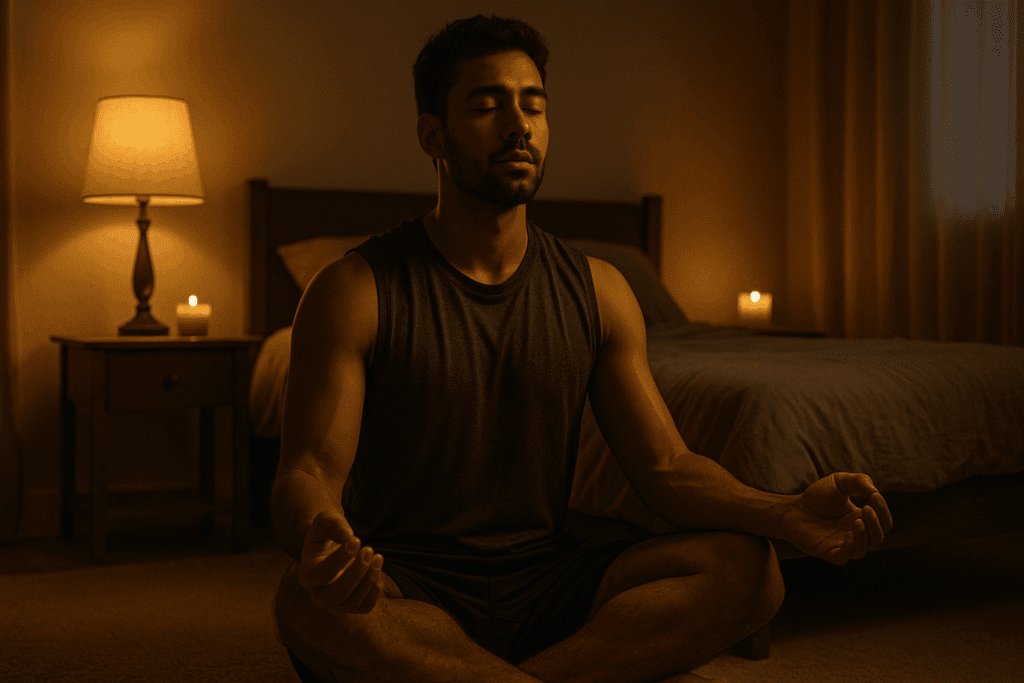
Benefits of Working Out Before You Sleep for Stress and Mental Health
For many individuals struggling with everyday ailments like anxiety, mild depression, or chronic stress, working out before you sleep can be a powerful tool for emotional regulation. Exercise is a well-documented antidepressant and anxiolytic, thanks to its capacity to influence brain chemistry and promote neuroplasticity. A workout before bed can serve as a ritual to release the tension accumulated throughout the day, signaling to the mind and body that it is time to let go.
Nighttime workouts can help create a sense of structure and routine, particularly for people whose daily schedules are erratic or overwhelming. This ritualistic component of exercise can foster a feeling of control, stability, and mental clarity. Moreover, the post-exercise endorphin release can help replace ruminative thought patterns with a sense of accomplishment and well-being. For these reasons, integrating physical activity into the evening hours may enhance not only sleep quality but also emotional resilience.
Is It Bad to Exercise at Night When Managing Sleep Disorders?
The debate over “is it bad to exercise at night” becomes even more critical when considering individuals with diagnosed sleep disorders such as insomnia, restless leg syndrome, or circadian rhythm disruptions. Clinical studies show that moderate evening exercise can improve sleep onset and efficiency in people with insomnia when performed several hours before bedtime. For these individuals, low-stimulation activities are typically more beneficial than high-energy sessions.
Restless leg syndrome, characterized by an irresistible urge to move the legs during periods of rest, may also respond positively to gentle evening stretching or yoga. Such activities reduce muscular tension and improve circulation, which may alleviate symptoms. However, for individuals with delayed sleep phase disorder, exercising too late in the evening could reinforce undesirable sleep timing patterns. These patients are better served by exercising earlier in the day to encourage a gradual realignment of their circadian rhythm.
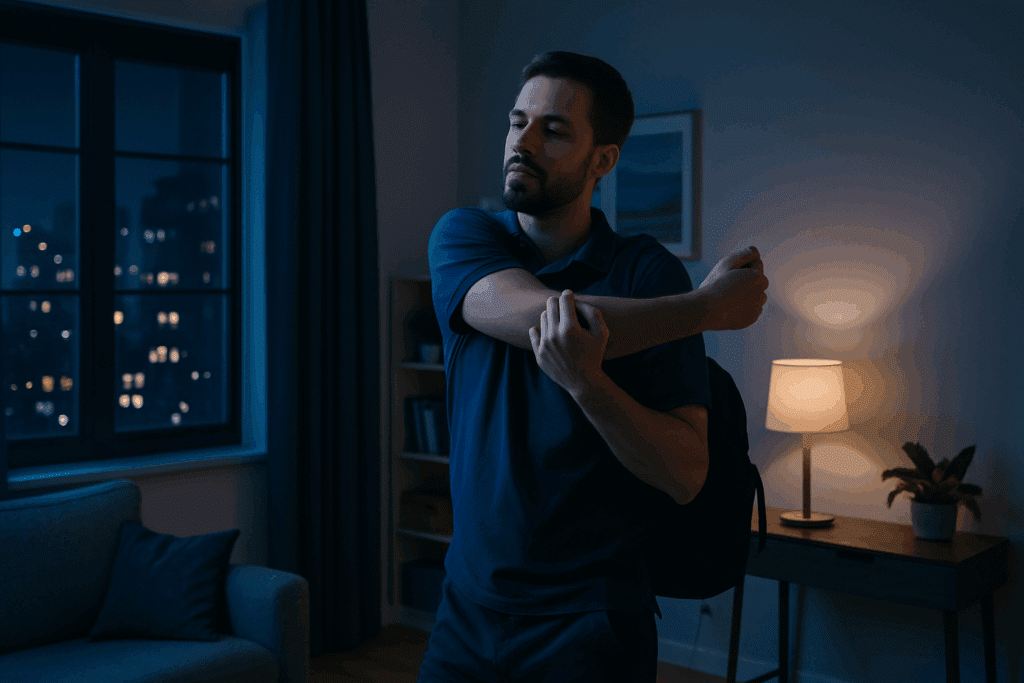
Is It Good to Exercise Before Bed for Shift Workers and Night Owls?
The modern workforce includes a significant portion of shift workers, many of whom must navigate irregular sleep patterns due to non-traditional working hours. For these individuals, the question of “is it good to exercise before bed” is especially relevant. Shift workers often struggle with fragmented sleep and low energy levels, both of which can be partially mitigated through properly timed physical activity.
Research suggests that for night-shift workers, engaging in light to moderate exercise before their scheduled sleep can help reduce cortisol levels and promote relaxation. This can be particularly helpful when transitioning from a high-stimulation work environment to a state conducive to sleep. Night owls, who naturally gravitate toward late bedtime hours, may find that late-night workouts align better with their biological rhythms and enhance sleep quality when appropriately timed and dosed.
Debunking the Myth: Is Working Out Before You Sleep Always a Bad Idea?
A prevalent myth in fitness and wellness circles suggests that working out before you sleep is inherently detrimental. This notion, however, is rooted more in anecdotal reports than in robust scientific evidence. As previously noted, the context of the workout—its intensity, duration, timing, and the individual’s chronotype—plays a decisive role in determining its impact on sleep.
Emerging studies demonstrate that evening exercise does not universally disrupt sleep. In fact, several trials have found that subjects who engage in light or moderate aerobic exercise 60 to 90 minutes before bed fall asleep faster and experience deeper sleep stages. Additionally, consistent evening workouts may help regulate appetite, reduce late-night snacking, and promote weight stability, which are indirect contributors to improved sleep hygiene. By moving beyond fear-based myths, we can make more informed decisions about our nighttime routines.
Optimizing Your Routine: Tips for a Better Work Out Before Bed
For those considering or already engaging in before bed workouts, several strategies can help maximize benefits while minimizing potential sleep disruption. Firstly, keep workouts under 60 minutes and at moderate intensity. This approach minimizes excessive stimulation while still offering the cardiovascular and mood benefits associated with exercise. Avoid pre-workout stimulants such as caffeine or high-sugar sports drinks, which can interfere with your ability to wind down.
Hydration should also be managed carefully; drink enough to replace fluid loss during exercise but avoid excessive intake that could prompt nighttime awakenings. Post-workout cool-down routines, including stretching and mindfulness breathing, can help signal to the nervous system that it’s time to relax. A warm shower after exercise may further support thermoregulation, promoting the body’s natural decline in temperature as it prepares for sleep. By crafting an intentional, balanced routine, individuals can safely incorporate exercise into their evening schedules without sacrificing rest.
Examining the Long-Term Effects of Exercising Before Bed
Looking at the long-term consequences of exercising before bed reveals a more complex picture. While short-term sleep disturbances may occur in some individuals new to the routine, adaptation often follows. The body, remarkably resilient and adaptive, can learn to associate nighttime physical activity with positive physiological and psychological responses. In the long run, regular physical activity at any time of day has been linked with improved cardiovascular health, better metabolic regulation, and enhanced mood stability.
However, consistency is key. Sporadic or erratic before bed workouts may contribute to irregular sleep cycles and inconsistent energy levels. Establishing a routine that includes consistent timing, intensity, and type of exercise helps the body adjust and integrate the activity into its circadian framework. Long-term adherence to well-structured nighttime workouts has also been associated with reduced symptoms of fatigue syndromes and better management of stress-related sleep disturbances. As with any health intervention, the benefits accrue over time with discipline and mindfulness.
Frequently Asked Questions About Nighttime Exercise and Sleep Quality
Can a before bed workout help with jet lag or travel-related sleep disruption?
Yes, a carefully timed before bed workout can be a valuable tool for resetting your internal clock after traveling across time zones. Physical activity influences circadian rhythm alignment by temporarily raising body temperature and shifting melatonin production, especially when paired with appropriate light exposure. After a long flight, light to moderate exercise—such as a brisk walk or gentle yoga—performed at the intended local bedtime can help reinforce your new schedule. However, the intensity should remain low to avoid overstimulation during the body’s natural winding-down period. Pairing a before bed workout with dimmed lighting, a warm shower, and sleep-friendly nutrition can make this technique more effective for adapting quickly to new time zones.
Is it good to exercise before bed for people dealing with chronic pain or fibromyalgia?
For individuals managing chronic pain conditions such as fibromyalgia, engaging in light exercise before bedtime can offer notable benefits. Gentle movement like stretching, tai chi, or low-impact aerobic activity can reduce inflammation, promote circulation, and release endorphins—natural painkillers that also support sleep. Unlike strenuous routines, which may trigger discomfort or restless sleep, slow, intentional workouts can ease muscular tension and signal safety to the nervous system. The psychological effect of routine nighttime movement also plays a role, helping reduce anticipatory anxiety about pain during the night. Always consult a healthcare provider for individualized guidance, especially when experimenting with new nighttime physical activity patterns.
How does exercising at night affect sleep quality for adolescents and teenagers?
Adolescents have naturally delayed circadian rhythms, often leading to difficulty falling asleep early. In this age group, exercising at night may actually support healthier sleep cycles when done properly. Engaging in moderate-intensity activities like swimming or dance in the early evening can help regulate mood, reduce screen time before bed, and create a calming post-activity transition to rest. However, intense late-night training sessions, especially involving competitive sports, may delay sleep onset and increase nighttime awakenings. Encouraging a structured, consistent before bed workout in the early evening can help teens meet both their fitness goals and sleep needs, provided it doesn’t interfere with wind-down routines.
What are some unexpected benefits of working out before you sleep for busy professionals?
Busy professionals often experience high stress and irregular schedules, which can disrupt sleep and overall health. A nighttime workout can serve as a physical and psychological transition from work mode to personal time. This shift can be especially effective in releasing built-up cortisol and fostering a sense of completion for the day. Moreover, working out before you sleep can help create a predictable, healthy boundary at day’s end—encouraging discipline and routine even amidst unpredictability. Professionals who travel frequently or deal with high decision fatigue may find nighttime exercise restores not only physical energy but also emotional balance, supporting long-term productivity and resilience.
Is it bad to exercise at night if you suffer from night sweats or hot flashes?
If you experience night sweats or hot flashes—common among perimenopausal women or individuals with hormonal imbalances—timing and intensity of nighttime workouts become critical. Exercising too late or at too high an intensity may raise core body temperature excessively, worsening nocturnal heat symptoms. However, gentle evening routines like restorative yoga, walking, or low-resistance training earlier in the evening can promote relaxation without triggering thermoregulatory distress. Cooling strategies such as post-workout showers, breathable sleepwear, and fans can further mitigate these issues. Tailoring the workout environment and recovery routine to accommodate temperature sensitivity allows individuals to continue reaping the benefits of exercising before you sleep without discomfort.
Can late-night physical activity improve emotional regulation and prevent late-night snacking?
Late-night snacking often results from emotional eating, fatigue, or a lack of structured evening habits. Incorporating a before bed workout can curb this behavior by providing an alternative outlet for emotional release and stress regulation. Physical activity promotes the release of dopamine and serotonin, which reduce cravings and enhance mood, lessening the psychological pull toward food. Furthermore, establishing a consistent movement routine may anchor the evening with structure and purpose, displacing idle behaviors like mindless snacking. For those trying to manage weight or improve metabolic health, this strategy provides both emotional and physiological benefits without requiring strict food restrictions.
Is exercising before bed bad for heart rate variability and long-term cardiovascular recovery?
Heart rate variability (HRV) is a key marker of autonomic nervous system balance and cardiovascular resilience. Some data suggests that intense exercise too close to bedtime may temporarily reduce HRV by prolonging sympathetic activation, which can delay deep rest. However, moderate and consistent exercising at night has been associated with improved baseline HRV over time due to its stress-lowering and circulatory benefits. Individuals using wearables like Whoop or Oura can monitor how different intensities of a work out before bed impact their overnight HRV, allowing for personalized optimization. The takeaway: avoid high-volume, high-impact workouts late at night, but don’t shy away from moderate evening exercise, which may enhance HRV long-term.
How does working out before you sleep influence dream quality and REM sleep?
The relationship between exercise and REM (rapid eye movement) sleep—the stage associated with dreaming and cognitive processing—is complex. Engaging in moderate physical activity before bedtime may improve REM duration and frequency, especially in individuals with sedentary lifestyles or mild depression. The mental fatigue and emotional clarity induced by physical activity help create a smoother transition into REM sleep cycles. However, overtraining or stimulating activities right before bed could delay REM onset or contribute to vivid, unrestful dreams. Individuals aiming to enhance dream clarity or REM consistency might benefit from coupling evening exercise with pre-sleep journaling or mindfulness, supporting both physical and psychological decompression.
Is it good to exercise before bed if you’re trying to build muscle mass?
Muscle-building efforts can absolutely benefit from a carefully structured evening workout plan. Growth hormone secretion, which plays a major role in muscle recovery and hypertrophy, peaks during deep sleep—and pre-bed resistance training may enhance this effect. Consuming a protein-rich meal or shake within an hour of a strength-focused before bed workout can further stimulate muscle repair. That said, ensuring proper cooldown and post-exercise relaxation is critical to prevent sleep disruptions that could negate muscle recovery benefits. Bodybuilders and strength athletes may find success splitting their workouts, with compound lifts earlier in the day and accessory work or stretching before bed to maximize anabolic potential without disturbing sleep.
What does future research suggest about the question: is it good to exercise before bed?
Future studies are beginning to explore genetic markers, chronotype variations, and wearable sleep tech to provide more personalized answers to whether is it good to exercise before bed. The emerging field of chronobiology suggests that optimal exercise timing may one day be prescribed based on individual circadian rhythms and metabolic profiles. As biometric data from consumer devices becomes more accurate, users can track how different workout styles and timings influence their unique sleep architecture. Researchers are also investigating the long-term impacts of late-night physical activity on metabolic syndrome, anxiety disorders, and hormonal regulation. The intersection of exercise science, sleep medicine, and digital health points to a more tailored approach—transforming the question from a general rule into a personalized strategy for well-being.
Final Thoughts: Finding Your Personalized Answer to Is It Good to Exercise Before Bed
Ultimately, the answer to the question “is it good to exercise before bed” lies not in rigid rules but in personalized experimentation and awareness. Each individual possesses a unique constellation of physiological, psychological, and lifestyle factors that influence how nighttime physical activity affects their sleep. What works brilliantly for one person may not suit another, and vice versa. Rather than fearing exercise after sunset, individuals should feel empowered to explore how different workout types, intensities, and timing affect their rest.
Consulting with a healthcare provider, sleep specialist, or fitness coach can provide tailored recommendations, especially for those with underlying health conditions or diagnosed sleep disorders. By paying close attention to one’s body, tracking sleep patterns, and making incremental adjustments, it becomes possible to harness the restorative power of both sleep and exercise. The surprising truth, then, is that exercising at night need not be an enemy of sleep. When approached thoughtfully, it can become a powerful ally in the pursuit of holistic well-being, energy, and resilience.
Further Reading:
Is It Bad to Exercise Before Bed? Putting The Question to Rest


